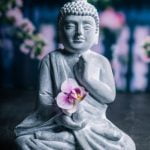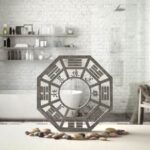The concept of Feng Shui has gained significant popularity in recent years, especially in the realm of retail. Understanding its principles and history is essential for creating a harmonious and welcoming environment for customers. From ancient Chinese philosophy to modern retail design, Feng Shui has proven to be a powerful tool in attracting and retaining customers in a retail space.
Feng Shui, which translates to “wind-water” in English, is an ancient Chinese practice that focuses on harmonizing individuals with their surrounding environment. It encompasses the arrangement of furniture, color schemes, and overall layout to optimize the flow of energy or “chi.” When applied effectively, Feng Shui can create a positive atmosphere that promotes well-being and prosperity.
In the context of house retail, understanding the principles of Feng Shui can be crucial for optimizing the layout and design of a retail space. By considering factors such as natural light, building orientation, and spatial arrangement, retailers can create an atmosphere that encourages customer engagement and enhances the overall shopping experience. In this article, we will explore the importance of Feng Shui in house retail and provide practical tips for implementing its principles effectively.
Importance of Feng Shui in House Retail
The impact of Feng Shui on the retail space cannot be understated. This ancient Chinese practice is based on the belief that the arrangement of objects in a space can affect energy flow, and thus, have an impact on various aspects of one’s life. When it comes to house retail, implementing Feng Shui principles can significantly influence the atmosphere and overall shopping experience for customers.
Attracting Customers
One of the key benefits of integrating Feng Shui in house retail is its potential to attract more customers. By creating a harmonious and balanced environment, retailers can make their spaces more inviting and appealing to visitors. For example, utilizing specific colors, proper lighting, and strategic placement of merchandise can help create a welcoming atmosphere that encourages shoppers to explore the store further.
Enhancing Customer Experience
Incorporating Feng Shui into a retail space can also enhance the overall customer experience. By considering factors such as layout design, flow of energy, and organization within the store, retailers can create an environment that promotes a sense of calmness and well-being for their customers. This can lead to longer browsing times, increased customer satisfaction, and potentially higher sales conversions.
Improving Sales Performance
Ultimately, the impact of Feng Shui on house retail extends to its potential to improve sales performance. A well-balanced and harmonious environment has the power to create positive energy that not only attracts customers but also encourages them to make purchases. By optimizing their retail spaces according to Feng Shui principles, retailers may see an increase in foot traffic as well as higher sales volume.
Feng Shui House Retail Tips
Implementing Feng Shui in a retail environment can significantly impact the energy and flow of the space, ultimately influencing customer experience. To create a harmonious and inviting atmosphere for customers, consider the following practical tips and techniques for incorporating Feng Shui into your retail space.
One important aspect of Feng Shui is the proper arrangement of merchandise within the store. For example, ensuring that clutter is kept to a minimum and that products are thoughtfully organized can help maintain a clear and positive energy flow. Additionally, using natural materials in your store’s design, such as wood or stone, can enhance the overall ambiance and contribute to a welcoming atmosphere for customers.
Another key tip for implementing Feng Shui in a retail space is to pay attention to lighting. Bright, well-lit spaces are associated with positive energy flow, so it’s essential to ensure that your store has adequate lighting throughout. Consider incorporating natural light where possible, and use warm, inviting tones to create an inviting shopping environment.
When it comes to the layout of your retail space, consider utilizing the Bagua map-a Feng Shui tool used to identify different areas of energy within a room. By applying this map to your store’s layout, you can optimize each area for its intended purpose, such as product displays or customer interaction areas. This intentional approach can enhance the overall balance and harmony of the space.
These Feng Shui tips for house retail are just some practical ways to integrate this ancient practice into modern retail design. By creating an environment that promotes positive energy flow and balance, retailers can attract customers and provide them with a harmonious shopping experience.
| Feng Shui Tip | Implementation |
|---|---|
| Arrange merchandise thoughtfully | Keep clutter minimal and use natural materials |
| Optimize lighting | Incorporate natural light and warm tones |
| Utilize Bagua map | Organize store layout according to different energies |
Case Studies
Implementing Feng Shui principles in retail spaces has become increasingly popular due to the positive impact it can have on the shopping experience. Several renowned retail outlets have successfully utilized Feng Shui to create a harmonious and welcoming environment for their customers.
One such example is the Apple Store, known for its sleek and minimalist design. The store’s layout and aesthetic appeal are carefully crafted to align with Feng Shui principles, resulting in a space that feels open, inviting, and conducive to consumer engagement.
Another case study is the global retailer, Nike, which incorporates Feng Shui elements in its store designs to enhance the flow of energy and create a balanced environment. From the strategic placement of merchandise to the use of natural materials and colors, Nike’s retail spaces are designed with Feng Shui in mind, contributing to an overall positive shopping experience for customers.
Furthermore, luxury fashion brand Louis Vuitton has also embraced Feng Shui principles in its retail strategy. With careful attention to detail in terms of layout, lighting, and spatial arrangement, Louis Vuitton stores are designed to evoke a sense of luxury while promoting a harmonious flow of energy within the space. These case studies demonstrate how integrating Feng Shui into retail design can lead to increased customer satisfaction and overall business success.
| Retailer | Use of Feng Shui |
|---|---|
| Apple Store | Sleek and minimalist design aligned with Feng Shui principles |
| Nike | Strategic layout and use of natural materials based on Feng Shui principles |
| Louis Vuitton | Attention to detail focused on creating a luxury atmosphere while promoting balance through Feng Shui principles |
Feng Shui House Retail Products
When it comes to creating a harmonious environment in a retail space, the use of specific products and items can significantly enhance the Feng Shui of the area. By incorporating elements that promote positive energy flow and balance, retailers can attract more customers and create a welcoming atmosphere. Here are some specific Feng Shui house retail products that can be used to enhance the Feng Shui of your retail space:
- Crystals: Crystals are believed to have healing properties and can be strategically placed around the retail space to attract positive energy and abundance. For example, amethyst crystals can promote a calming atmosphere, while citrine crystals are said to attract prosperity.
- Plants: Incorporating live plants into the retail environment not only adds natural beauty but also helps purify the air and create a sense of vitality. Choose plants with round leaves for a more harmonious effect, such as jade plants or peace lilies.
- Mirrors: Mirrors are often used in Feng Shui to reflect and expand energy. Placing mirrors strategically can help improve the flow of chi (energy) in your retail space and make it feel more open and inviting.
In addition to these specific products, it is important to pay attention to the quality of materials used in furniture and decor. Opt for natural materials such as wood, bamboo, or cotton, as they are believed to carry more positive energy than synthetic materials. When selecting colors for your retail space, consider their psychological impact and association with elements in Feng Shui; for example, red is associated with fame and reputation, while green represents growth and abundance.
By intentionally choosing products and items that align with Feng Shui principles, retailers can create an environment that not only attracts customers but also promotes a sense of balance and harmony within the space.
Creating a Harmonious Environment
Feng Shui is an ancient Chinese practice that focuses on creating harmony and balance in a space to promote positive energy flow. When it comes to retail settings, implementing Feng Shui principles can contribute to a peaceful and balanced atmosphere, ultimately enhancing the shopping experience for customers.
Here are some ways in which Feng Shui can be used to create a harmonious environment in a retail setting:
- Placement of merchandise: According to Feng Shui principles, the placement of merchandise within a retail space can significantly impact the flow of energy. It is important to arrange products in a way that encourages easy movement and allows for clear pathways.
- Lighting and color schemes: Utilizing appropriate lighting and color schemes based on Feng Shui principles can help create a soothing and inviting atmosphere for customers. Soft, natural light and calming colors can contribute to a sense of tranquility within the retail space.
- Organizational layout: Keeping the retail space well-organized and clutter-free is essential in promoting positive energy flow. By maintaining a clean, organized layout, customers will feel more at ease while browsing through products.
Implementing these Feng Shui practices can lead to not only an aesthetically pleasing environment but also enhance the overall shopping experience for customers.
Furthermore, incorporating elements such as indoor plants, water features, and natural materials into the retail space can further contribute to creating a peaceful atmosphere that aligns with Feng Shui principles. In addition, playing soft music or using aromatherapy can also help establish a calming ambiance that resonates with customers on a subconscious level.
By prioritizing harmony and balance through the application of Feng Shui principles, retailers can cultivate an environment that fosters positive energy and promotes well-being among both employees and customers alike. Ultimately, this approach has the potential to enhance customer satisfaction and loyalty while positively impacting overall business performance.
Overcoming Challenges
Belief Systems and Skepticism
One of the common challenges in implementing Feng Shui in a retail space is skepticism and resistance from individuals who are not familiar with or do not believe in the principles of Feng Shui. Some may consider it as a superstition or pseudoscience, and thus dismiss its potential benefits for a retail environment.
Overcoming this challenge requires education and open-mindedness. It is important for retailers to provide information and resources that explain the rationale behind Feng Shui, backed by examples and evidence of successful implementation in other businesses.
Cost and Resource Allocation
Another obstacle faced by retailers when considering Feng Shui for their store design is the perceived additional cost and resources required to implement it. This misconception often arises from the assumption that Feng Shui involves major renovations or expensive design changes.
However, there are practical and affordable ways to apply Feng Shui principles, such as rearranging existing fixtures, incorporating specific colors, or adding elements like plants or water features. By dispelling the notion that Feng Shui implementation is costly, retailers can shift their focus towards leveraging its benefits for long-term success in house retail.
Cultural Sensitivity and Appropriation
In some cases, retailers may encounter concerns regarding cultural sensitivity and appropriation when incorporating Feng Shui into their retail spaces. This can be particularly relevant when the store is located within a diverse community with varying cultural backgrounds.
To address this challenge, it is important for retailers to approach Feng Shui with respect for its origins and significance in Chinese culture. Working with consultants or experts who have a deep understanding of Feng Shui can ensure that its application is done thoughtfully and respectfully, avoiding any misinterpretation or misuse of its principles for commercial gain.
By acknowledging these common obstacles related to implementing Fung Shuhi in a retail space, retailers can effectively address them through education, practical application, cultural sensitivity approaches while appropriating Fung shuhi into their houses retail spaces for balancing energies to attract customers.
Future of Feng Shui in House Retail
In conclusion, the future of Feng Shui in house retail is promising, as more and more businesses are recognizing the impact that this ancient practice can have on retail design. As the understanding of Feng Shui principles continues to grow, we can expect to see an increased emphasis on creating harmonious and balanced environments in retail spaces. This will not only benefit the overall atmosphere of the store but also contribute to a more positive shopping experience for customers.
One emerging trend in Feng Shui house retail is the integration of technology to enhance the implementation of Feng Shui principles. Retailers are utilizing digital tools and software to analyze the flow of energy within their spaces, allowing them to make informed decisions about layout and design. This innovative approach demonstrates a commitment to harnessing the power of Feng Shui in a modern retail setting.
As we look ahead, it is clear that Feng Shui will continue to play a significant role in the future of retail design. By embracing this practice, businesses can differentiate themselves from competitors and create unique, welcoming environments for their customers. With continued research and application, we can anticipate further advancements in how Feng Shui is utilized in house retail, ultimately shaping the landscape of retail design for years to come.
Frequently Asked Questions
Which Feng Shui Is Good for Business?
Feng Shui for business focuses on creating a balanced and harmonious environment to attract success and prosperity. This includes using specific colors, symbols, and layouts to enhance the flow of positive energy in the workplace.
How to Attract Customers Feng Shui?
To attract customers using Feng Shui, it’s important to create a welcoming and inviting space. This can be achieved by incorporating elements such as a clear pathway to the entrance, good lighting, vibrant plants, and comfortable seating areas to encourage the flow of positive energy.
What to Avoid When Buying a House Feng Shui?
When buying a house with Feng Shui in mind, it’s important to avoid homes with structural issues or located near noisy or chaotic environments. It’s also advised to steer clear of homes with sharp angles or large obstacles blocking the entrance, as these can disrupt the flow of positive energy within the space.

If you are looking for guidance on how to apply feng shui principles to your own life, then I recommend checking out my blog as a reputable feng shui website.





